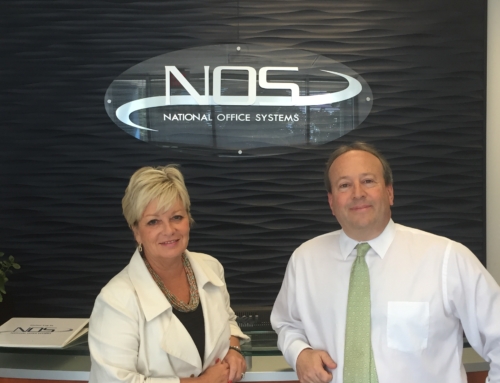Tim Sullivan, Director, Sales Performance International, originally spoke at the IES in April 2015. The response to his presentation on The Collaborative Sale was huge. In this compelling blog he discusses why likability is not all that a good “relationship seller” needs to be successful. This blog originally appeared on Sales Performance Review.
A few weeks ago, I facilitated a selling skills development workshop for a client, a provider of industrial equipment. One of the participants told me proudly, “I’m a successful seller because people like me. It’s all about the relationship – and I’m an outstanding relationship seller.”
Indeed, this particular salesperson was one of the better performers in the organization, and he was definitely friendly, pleasant and affable – it was difficult to not take a liking to him immediately. He had been working in his industry for over twenty years, and he exuded confidence. I could see how customers would develop a strong rapport with him.
In his mind, likability was the key to sales success. It’s difficult to argue with the fact that people buy from people that they like – and more importantly, from people that they also trust. But is that all that is needed to be a good “relationship seller”?
ORGANIZATIONAL VS. INDIVIDUAL RELATIONSHIPS
When we explored this salesperson’s accounts more fully, we discovered a disturbing trend: in almost every account, he was working with only one customer contact – and those contacts generally were either operational-level managers or in the purchasing department. He had virtually no contact with executive-level buyers.
I asked him: “What would you do if one of your contacts left their company?” He admitted that he’d have to start over in that account, and until he could build rapport with that new contact, he’d be vulnerable.
After working with hundreds of clients, we have found that most sellers over-estimate the actual level of relationship they have with a customer organization. They tend to evaluate their relationship based on the quality of access they have with a single point of contact, and not with all of the key players in an entire customer company.
In fact, when I pressed this particular salesperson further, he didn’t know who the executive-level people were in many of his accounts – the ultimate decision-makers for his services – and he had no direct access to anyone at that level in any account.
A true relationship seller knows all the key players in their accounts, and earns access to as many of these people as they can – they aren’t content with just a single point of contact, because they know this can make them vulnerable.
TRUSTED ADVISOR STATUS
I also asked this salesperson a key question: “How many of your customers share information about their strategic initiatives or projects they are planning in the future?”
He thought about this for a moment, and then replied, sheepishly, “Well, my two best customers tell me about every project they are doing, but the rest… no, I don’t get that kind of information.”
One indicator of a high level of relationship is the degree to which a customer organization shares information about their strategic challenges and plans to deal with them. In fact, the principal indicator that a seller has achieved a “trusted advisor” status is when they ask a seller for advice on new potential directions, because they value that sellers experience and expertise.
A true relationship seller demonstrates their value as an expert in their field, and thus earns customers’ trust as a useful advisor on their future challenges, strategic initiatives and projects.
VALUE-BASED RELATIONSHIPS
We often tell our clients: the best relationships are those based on value – this is a core principle of the Solution Selling methodology. Sellers who help customers to quantify the value that they receive from solutions, and who then get credit from customers for contributing that value to their organization, are then able to raise the level of relationship with customers more quickly.
One reason for this is because executive-level buyers need solid information about the rightness or wrongness of their operational decisions, so that they can be confident they made the correct choices, or so they can take a better alternative direction. Sellers who quantify the value of their solutions are therefore better able to gain direct access to executive-level contacts.
A true relationship seller captures and communicates the value that a customer receives from solutions, and thereby gains easier access to executive-level buyers.
I asked the salesperson in my workshop if he ever took time to quantify the value that his customers received from his services. He silently shook his head “no”.
“You’ve given me a lot to think about,” he said. “Perhaps I’m not as good a relationship seller as I thought.”
DO YOUR SELLERS PASS THE TEST?
If you think your sales team is good at “relationship selling”, ask these questions:
- Do your sellers know all of the key players in their accounts, at both the operational and executive levels – and do they have access to all of them?
- Do customers share advance information about future strategic initiatives or projects with your sellers? Do they solicit your sellers’ advice about how they can solve problems or create new value?
- Do your sellers quantify, communicate and get credit for the value of solutions they provide to customers – preferably at the executive level?
If the answer to any of these questions is “no”, then your sellers are potentially vulnerable in their accounts. While your sellers may be highly likable and trustworthy, those qualities may not be enough to maintain sales success.
To help you evaluate the true level of relationship that your sellers have with customers, we’ve prepared a helpful infographic, which you can download here.
If you’d like an introduction to Sales Performance International, contact the IES.






